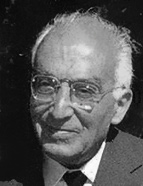

SDA ’ s publications featured various historical personalities, both male and female, presented in their political and human dimensions: D. Fernando, D. Beatriz, D. Leonor Teles, D. João I, and Prince Pedro. Inês de Castro was, however, the historical character whose life most captivated SDA ’ s mind and , above all , his heart. In his classes, he was able to transport his students to the medieval universe through this female figure. He spoke of Inês as if he had met her. Coimbra and the drama of Inês de Castro were the topics of the inaugural lecture of the Holiday Course at the School of Arts and Humanities of the University of Coimbra , which was given in July 1970. He took up the subject again in 1972, in a course aimed at foreign students, discussing the episode of Inês de Castro in the light of Portuguese history , which also contributed to the international projection of the Inesian theme. In 1985, in a paper presented at the first congress on the History of Women, held in Coimbra ( A mulher na sociedade portuguesa: visão histórica e perspectivas actuais [Women in Portuguese society: historical vision and current perspectives] ), he addressed the political consequences of the love affair between Pedro and Inês.
As mentioned above, SDA ’ s curriculum vitae include d teaching various courses in the field of the History of Portuguese Expansion. João Marinho dos Santos considers, however, that A Crise Nacional dos finais do século XIV. A sucessão de D. Fernando [The National Crisis at the end of the 14 th Century. Ferdinand’s succession] is a must-read book for anyone who wants to understand the origins of the expansionist process, even if this might not have been the purpose of Salvador Dias Arnaut ’ s research’ (Santos, 2011, p. 362).
Symbolically, the last study that the physician/historian wrote was a chapter published in the 1 st volume of the História da Universidade em Portugal [History of U niversity in Portugal] , entitled Medicina [ Medicine ] (1997), in which he addressed the teaching of medical science and the training of physicians throughout the Middle Ages.
This work is financed by national funds through FCT - Foundation for Science and Technology, I.P, in the scope of the projects UIDB/04311/2020 and UIDP/04311/2020.
